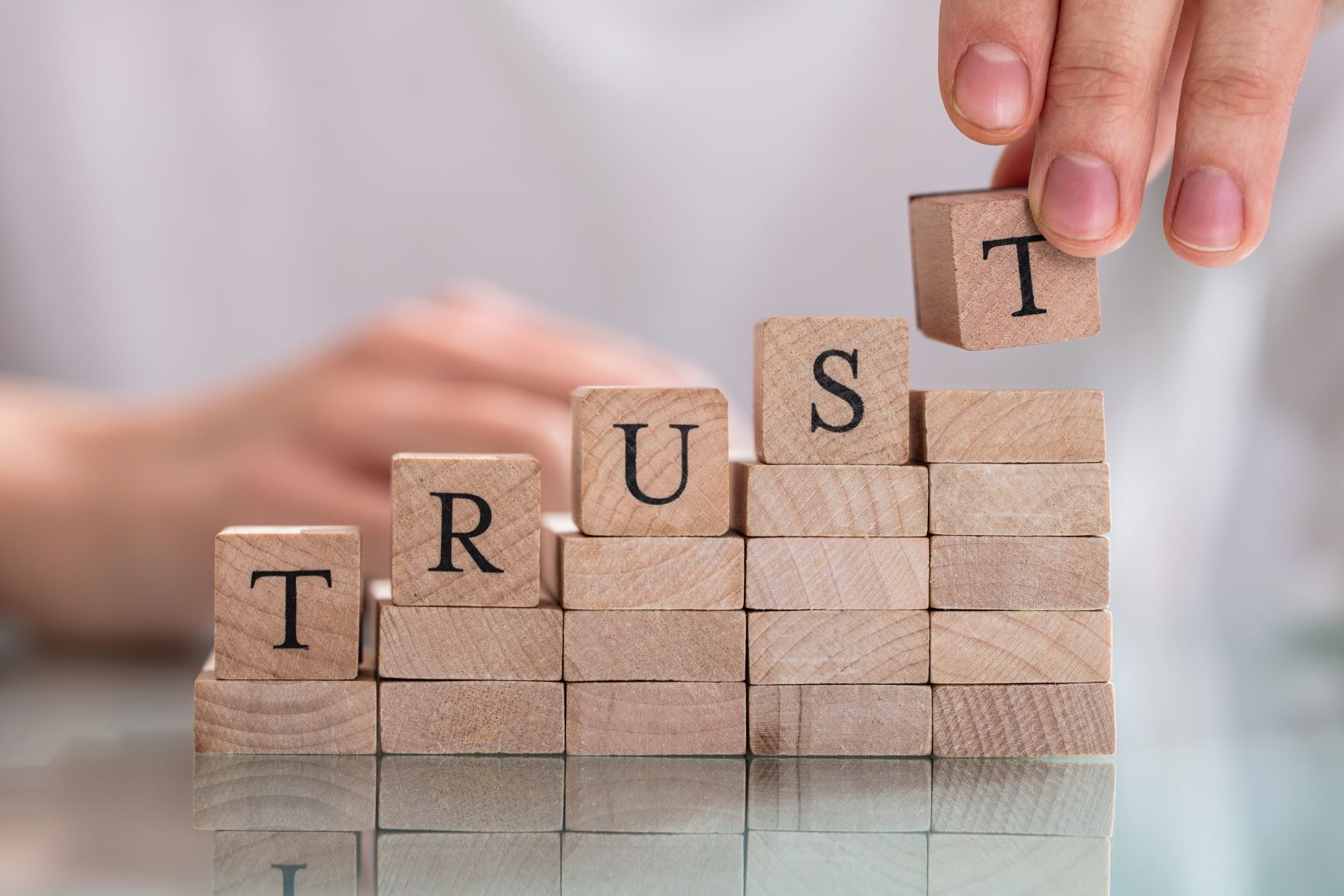You have no doubt heard about the three ‘T’s required to re-open the economy – Testing, Tracking and Treatment. However, another important aspect of the recovery cannot be overlooked and that is Trust. Rebuilding trust in our relationships may be more important now than it has ever been before. The global pandemic and necessary social distancing measures have impacted how we engage and interact with each other and have accelerated the digital transformation in many significant ways.
What happened to Trust?
- Can you trust the person you interviewed via Zoom to fill a critical role on your team when you could not meet face-to-face and shake their hand?
- Can you trust your employees working remotely to be disciplined and diligent? Have you implemented tools to monitor their screen activity and restrict their web-access?
- Can virtual happy hours replace the bonding that occurs during team dinners? Are social media and direct messaging enough to build and sustain strategic relationships?
- Can you trust public leaders to use discretion when monitoring your movement via mobile phones and overhead cameras? Is giving up our privacy the price to pay for public safety?
- Can you trust the people you see in stores, elevators, public transportation and office buildings to be honest about their health and to maintain a safe distance?
- Can you trust the salesperson that made a compelling presentation via Webex about a new product/service that sounds simply amazing? Well, maybe that one has not changed.
The Evolution of Trust
A very unusual thing happened during World War I. British and German soldiers left their trenches, shook hands and came together in No Man’s Land to sing songs, exchange chocolates, cigarettes and schnapps and play soccer for three days. The Christmas Truce of 1914 showed that enemies can become friends, even for a short time, under the harshest conditions of war.
The soldiers called it the “live and let live” system. Trench warfare required soldiers to face off against the same people every day. This repetitive process makes a big difference with trust. There are some good lessons to apply during our quarantine as we seek solutions to common problems. There is a fascinating simulation you can play to learn much more about the evolution of trust at https://ncase.me/trust/. It takes about 30 minutes and is time well spent.
The Importance of Trust
“Trust is the glue of life. It is the most essential ingredient in effective communication. It is the foundational principle that holds all relationships,” according to Stephen Covey. So true. William Shakespeare wrote “Love all, trust a few, do wrong to none” in All’s Well that Ends Well. Excellent advice as we adapt to new methods of rebuilding trust in a pandemic stricken world. Except the challenge is that we seemingly must now trust everyone to conquer this novel coronavirus. May you, and all whom you trust, continue to stay safe and healthy in these turbulent times.




